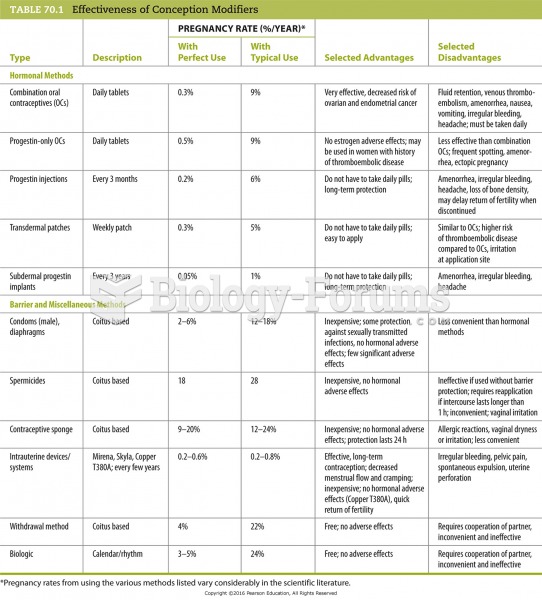|
|
|
Despite claims by manufacturers, the supplement known as Ginkgo biloba was shown in a study of more than 3,000 participants to be ineffective in reducing development of dementia and Alzheimer’s disease in older people.
A cataract is a clouding of the eyes' natural lens. As we age, some clouding of the lens may occur. The first sign of a cataract is usually blurry vision. Although glasses and other visual aids may at first help a person with cataracts, surgery may become inevitable. Cataract surgery is very successful in restoring vision, and it is the most frequently performed surgery in the United States.
The first oncogene was discovered in 1970 and was termed SRC (pronounced "SARK").
Aspirin is the most widely used drug in the world. It has even been recognized as such by the Guinness Book of World Records.
The longest a person has survived after a heart transplant is 24 years.







